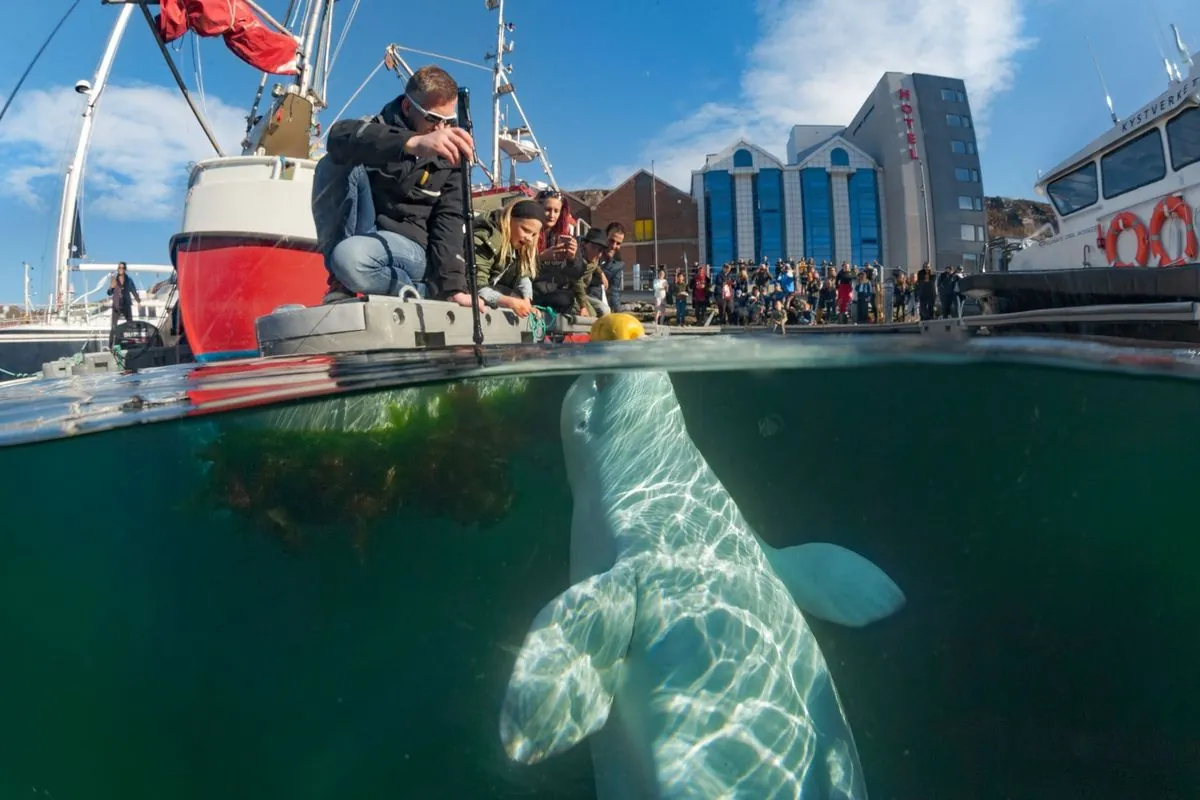Whaledimir: The Curious Tale of a Suspected Russian 'Spy Whale'
A beluga whale, dubbed Whaledimir, found in Norway in 2019 with Russian-linked equipment, dies in 2024. His story raises questions about marine animals in military operations.

In April 2019, a peculiar event unfolded off the Norwegian coast when a solitary beluga whale approached fishing vessels, exhibiting unusual behavior. This encounter sparked intrigue and speculation about the whale's origins and purpose.
The whale, later nicknamed Whaledimir, displayed several atypical characteristics. Firstly, beluga whales are highly social creatures, typically living in pods of 10 to 100 individuals. Seeing one alone was unusual. Secondly, the whale was far south of its natural Arctic habitat. Lastly, it wore a harness with a camera mount, bearing the inscription "Equipment St Petersburg."
These factors led to an investigation by Norway's intelligence agency. Satellite images revealed potential cetacean holding pens near Russian naval bases, fueling speculation about Whaledimir's possible military connections.
Over the next five years, Whaledimir became a beloved figure in Norwegian waters. He struggled to feed himself and often approached boats for food, displaying a playful demeanor. The Norwegian Directorate of Fisheries monitored his well-being, eventually deeming him a "free-swimming" whale.
Tragically, on September 2, 2024, Whaledimir was found dead in Risavika port. Sebastian Strand, a marine biologist who had been monitoring the whale, expressed shock at the sudden demise of an apparently healthy animal.

The use of marine mammals for military purposes has a long history. Both the United States and Russia have employed dolphins and other cetaceans for tasks such as mine detection and underwater surveillance. Belugas, with their exceptional echolocation abilities and capacity to dive up to 1,000 meters, could be valuable assets in such operations.
Philip Hoare, author of "Leviathan, or the Whale," notes that belugas' adaptability to cold waters makes them particularly useful for operations in Arctic regions. Their unique anatomy, including a flexible neck allowing for a wide range of head movement, could be advantageous for underwater camera work.
While Whaledimir's true origins remain a mystery, his story highlights the complex relationship between humans and marine life. As a species considered vulnerable by the IUCN, belugas face threats from climate change and human activities. Whaledimir's tale serves as a reminder of the need for conservation efforts and ethical considerations in our interactions with these intelligent creatures.
"It's absolutely horrible. He was apparently in good condition as of [Friday], so we just have to figure out what might have happened here."
The legacy of Whaledimir, whether he was indeed a "spy whale" or simply a lost and friendly beluga, continues to captivate public imagination and raise important questions about the use of marine animals in human endeavors.


































